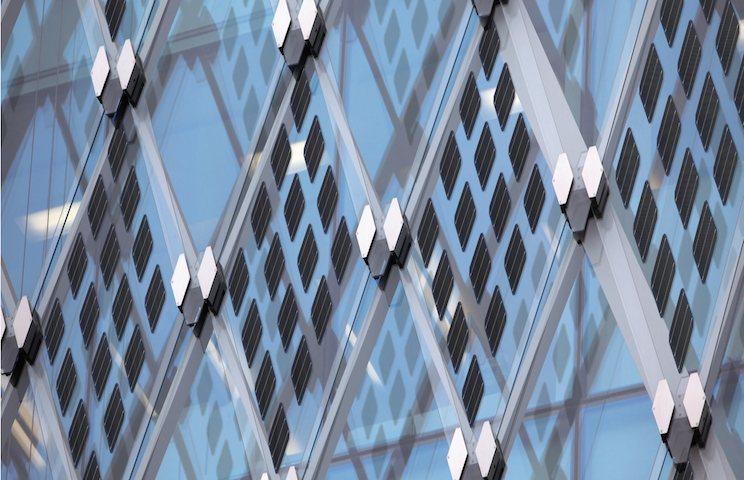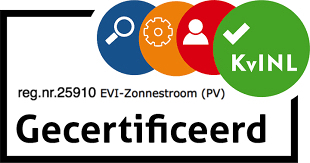Transparent solar panels for glass and facade applications
03-01-2018
Solar panels play an important role for clean electricity production in the Netherlands. The available space for this seems scarce due to the high degree of urban development in the Netherlands. Traditionally, roofs are used for the installation of solar panels, but there are many more possibilities and solutions that make renewable energy more efficient.
Transparent solar panels are excellent for balcony separations, roof windows and all types of roofing. "The first applications and assignments are now in place for these transparent solar panels. The applications are very wide, with windows, glass covers (for buildings), railway stations and even bus stops," said Rene Borro of Rebor BV. Rebor BV from Amsterdam provides various solutions with standard and customized solar panels. When customizing, consider specific sizes or shapes, with insulated double glass fully or partially provided with solar cells.
"A unique new product, innovative and excellently applicable in the built environment. The combinations we can now make with transparent panels, dark-colored Loci solar panels and even tiles give space for creative options," said Rene Borro of Rebor BV.
EPC value and aesthetic solutions
"We see a lot of opportunities for architects and construction companies to comply with the mandatory EPC (Energy Performance Coefficient) requirements, but in an aesthetically responsible manner," said Rene Borro. A few months ago, Rebor BV was nominated for the architectural prize in Weert (NL) with the Loci solar panel roof. "We are proud of it, architects are increasingly familiar with our products and a nomination is already a (symbolic) prize for us," said Rene Borro. In addition to these transparent solar panels, Rebor BV is the inventor and patent holder of the Loci solar panel roof. According to Rene Borro, the Loci (Low cost integrated solar and insulated roof) solar panel roof is suitable for both new construction and renovation, partly because the completely insulated roof with solar panel roofing is manufactured at the factory and this saves a lot of time and inconvenience at the construction site. "The Loci panels are not transparent and cover the entire glass surface with solar cells. As a result, both products complement each other and can be used in one project (transparent and not transparent). Windows and balcony screens can be made with transparent panels, while roofing with Loci solar panels can be carried out," said Rene Borro.
Visit building sites
We invite architects, installers, construction companies and stakeholders to discover all innovative applications at one of the construction sites. A construction project with Loci solar panels appeared in the media a few weeks ago, called "Tiny Houses". The first real Tiny House street in the Netherlands was officially opened in Hurdegaryp in the province of Friesland. Five houses were opened by Mayor Jeroen Geborg van Hurdegaryp in the municipality of Tytsjerksteradiel, with interest in national media," said Rene Borro.
"We have developed the Loci system in the manner that we can produce prefabricated parts in predetermined sizes, enabling construction companies to build solar panel roofs quickly and efficiently, less chance of delay and at a competitive cost compared to a regular roof with solar panels. Great positive difference is the appearance and the yield. Customers no longer have to doubt the amount of solar panels they buy, we fill the entire roof. And where the sun does not shine or where roof windows and other obstacles sit, we place equivalent dummy panels that look identical, but can not actively generate energy," said Rene Borro.
Rebor BV
Rebor bv (2006) is engaged in innovations and research in the field of solar energy for the generation of electricity within the built environment, and in particular the architectural integration in the area. This is often done in collaboration with other companies in the sector and knowledge institutes such as Eindhoven University, ECN, TU Delft and the combination of both in the organization called SEAC (Solar Energy Application Center).




-0lkh7sub9lwnsc4_o_kopie_1712826758.jpg)
-rebor_3_1514985145.jpg)



